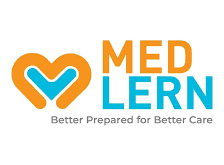Formerly, Oral Cancer was almost exclusively observed in older persons, usually compromised by habits, such as tobacco chewing, or heavy smoking. Today, that pattern is shifting dramatically. Younger people, including those in their twenties and thirties, are being diagnosed with Oral cancer. The situation is more alarming in India’s small cities and villages, where awareness is still negligible, and urgent measures are indicated.
A Disease No Longer Limited by Age
In the past, doctors expected oral cancer to emerge in older people, mostly due to decades of indulging in unhealthy habits. Unfortunately, the expectation that younger people will be protected by the factor of age has been reversed dramatically in recent years.
The reason is not difficult to identify. Chewing tobacco in more “modern” forms, such as flavoured gutkha and pan masala, combined with early exposure to smoking or drinking, amongst younger people, has opened the flood-gates of vulnerability to oral malignancies. Moreover, unlike in older persons, where symptoms may take time to appear, these malignancies in younger patients tend to advance faster and more aggressively.
What Is Oral Cancer?
Oral cancer is a malignant disease that occurs in the mouth, including the lips, tongue, inner cheeks, mouth floor, and, in some circumstances, the throat. It usually begins as a small, painful, white or red patch, or lump that won’t heal. Early symptoms are easy to dismiss.
But make no mistake: mouth cancer can be fatal, if not detected early. It can impair speaking and eating abilities, as well as disfigure parts of the face. More critically, if cancer spreads from the mouth to the lymph nodes or lungs, therapy becomes more difficult and the odds of survival decrease.
What is driving this trend among the young?
Lifestyle choices are to blame. Chewing gutkha or khaini has become popular among adolescents because it is readily available and inexpensive. These items are frequently advertised with appealing packaging and flavours, attracting teenagers and young people who may be unaware of the long-term consequences.
Furthermore, the increase in alcohol usage and smoking, particularly among college students, is contributing to the problem. These habits undermine the body’s natural defences, allowing toxic substances to destroy oral cells.
Another lesser-known, but growing factor is poor oral hygiene. Unclean teeth, gum infections, or continual discomfort from a fractured tooth or ill-fitting dentures, can all cause alterations in mouth tissues, eventually leading to malignant growths.
Many young people are unaware of the risks, or the warning signs, or, if and when they should seek medical attention. By the time they decide to act, the condition is usually advanced.
The Value of Early Detection
What is the good news? Oral cancer is one of the few tumours that can be detected early—if you know what to look for. Any oral wound that does not heal within 2-3 weeks, chronic ulcers, swelling, or trouble moving the tongue or jaw, should be immediately attended by medical experts.
Dentists and ENT specialists are frequently the first to identify warning symptoms. Regular dental checks, even if only once a year, can help detect early signs of cancer.
Quitting smoking and drinking, as well as practicing basic oral hygiene, can all help to lower the risk. Brushing twice a day, using mouthwash, and cleansing the tongue are all simple procedures that can help prevent major issues.
The difficulty in India’s smaller cities and villages is twofold: a surge in risky lifestyle choices, accompanied by an alarming lack of awareness of the dangers involved. This vicious combination accounts for the increasing incidence of Oral cancer among younger populations.
Fortunately, hospitals in these locations now have skilled doctors who can detect and treat oral cancer using modern treatments such as surgery, radiation, and chemotherapy. Health education in schools, during community discussions, and monthly screening camps, may assist in raising awareness, particularly among young people.
If you or someone you know, uses tobacco in any form, and presents suspicious symptoms, or if you observe any strange changes in your mouth, do not wait. Early detection prevents major complications, lowers the cost of therapy, and saves lives.
Oral cancer among young Indians is no longer uncommon. Ignoring the symptoms can be a life-threatening mistake. The power to reverse this rests with the individual who is affected. Be aware, be awake, and do not be afraid to seek medical attention. If you have even the smallest worry, see an expert. A simple check today, may save your life tomorrow.
By Dr. Dr. Kunal Mangle, Consultant Surgical Oncologist at HCG Hospitals, Bhavnagar
 Newspatrolling.com News cum Content Syndication Portal Online
Newspatrolling.com News cum Content Syndication Portal Online






